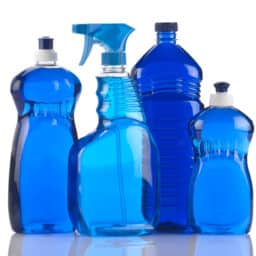Exposure to certain chemicals can have damaging effects on our ears, leading to hearing loss, according to the CDC. These chemicals are called ototoxicants, or ototoxic chemicals, and can make our ears more sensitive to noise. It’s important to be aware of the types of ototoxic chemicals found in our homes and take steps to minimize exposure.
Chemicals to Be Aware Of
Here are some examples of hazardous chemicals commonly found in our daily lives:
• Benzene: found in plastics, paints and cleaning agents
• Carbon disulfide: present in pesticides
• Carbon monoxide: Emitted by vehicles and gas-powered tools
• Styrene: Found in plastics
• Toluene: Used in paints and adhesives
• Xylene: Present in paints and paint thinners
• Trichloroethylene: Found in paints, pesticides and rug and spot cleaners
These chemicals can enter our bodies through various means, such as inhalation, consumption of contaminated food and drinks or absorption through the skin. Once in our bloodstream, the chemicals can cause damage to the inner ear and nerves responsible for transmitting sound to the brain.
Protecting Yourself
To protect yourself from the harmful effects of these chemicals, consider the following preventative measures:
• Read labels carefully when purchasing solvents and cleaning supplies, opting for safer options. Try Lassens Natural Foods & Vitamins for natural cleaning options.
• Wear personal protective equipment, such as masks, goggles and gloves when using supplies containing hazardous materials.
• Ensure proper ventilation in the areas where you work with these chemicals and where they are stored.
• Dispose of chemicals responsibly, following recommended guidelines.
Exposure limits for many chemicals were set without considering their impact on hearing. This means that exposure to levels below existing guidelines may still be enough to pose a risk to your hearing health. By staying informed and taking precautions, you can promote safe chemical handling and protect your hearing.
If you’re concerned about hearing loss or would like to get your hearing checked, we encourage you to reach out to Decibel Hearing Services for more information.

